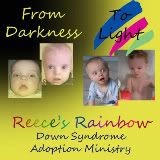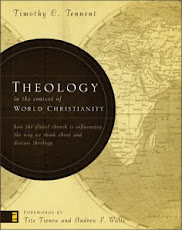
Remedy Church - 05/10/09
Crucified Christ: week 14
Sermon Notes:
INTRO
- Remember, the freedom Paul is speaking of in this section is indeed a freedom from guild and sin; however, it is also a freedom to live for Christ
TWO MAIN POINTS
(1) If salvation is by works and not the Gospel, then you have been severed from Christ and have fallen away from grace (Gal 5:2-4; Gal 5:7-12)
- This if/then statement is true, despite the fact that a person cannot lose his salvation
- According to Paul, if you are going to be a legalist and choose certain rules/laws that everyone must obey for salvation, then you must obey every single one of them perfectly if it is going to be any benefit for you
- Paul makes this previous point abundantly clear by using the strong language of proclaiming that these men should follow their own system to its logical conclusion and castrate themselves
- Two doctrines are being communicated: (1) Justification by faith, not law or obedience; (2) REAL faith really saves
- If your actions/life appear to prove that you are not a believer, then you were never actually regenerated
- A Christian cannot lose his justification or return the gift of salvation: (Phil 1:6; Jn 6:39; 1 Pet 1:36; Rom 8:29-30; Eph 1:13-14; 2 Cor 1:21-22; 1 Jn 2:19)
- The point of contact between eternal security by God's sovereignty and our responsibility as Christians is fuzzy; the place where these two truths meet is a mysterious place from our point of view (1 Jn 2:24-25; Gal 5:4)
- We can know that God is sovereign, and Christ will not lose a single one of the elect (Jn 10:27-29); however, we are also supposed to work out our salvation with fear and trembling (Phil 2:12)
(2)So, real faith shows itself by showing outward demonstrations of love for your neighbor (Gal 5:13-15)
- Faith ALWAYS gives birth to love (this cannot be overstated)
- 1 Jn 4:7-8; Matt 22:37-39; James 1:22; Gal 5:22-23; Eph 2:10; Matt 7:17-20; 1 Cor 13:1-3
- Don't be the podcast/blog guy who knows what everybody believes and hears every sermon or conference, but doesn't get out there to love and serve his neighbors
- We need to pull ourselves away from ourselves for long enough to serve others - this should be convicting for all of us
QUESTIONS
Are you recognized by your fruit/love?
Does your love for others make you stand out at work, at school, or in your neighborhood?
What should our lives look like according to Gal 5:5-6, 13?
What would it look like if you really loved your neighbor?
MY THOUGHTS
It seems that most Christians love claiming their justification. We love to proclaim that we are no longer under the consequences of sin. We are excited about our pardon (our get out of Hell free card). We all cling to the fact that we have been saved from something; however, we usually forget, or have completely missed, that we have been saved to something.
Phud began his sermon by making the point that we are not just free from our sin, but we are free to live for Christ. We have to understand and embrace this from/to duality of our salvation. We are saved not only "from", but also "to". God does not simply pardon us and send us on our way. Rather, he pardons us for a purpose. He saved us from sin and self, so that we can live for his glory and our mission.
As I am writing this, I am deeply convicted by my utter failure to live according to this principle that I know to be true. Christians are called to be MISSIONAL PEOPLE. He calls us out of darkness and into light. Being MISSIONAL means being about God's mission of making worshippers of his name. This means taking the gospel to the ends of the earth and to the end of my street. Being missional PEOPLE means that we carry out this mission in the context of community, primarily that of the local church. Both of these characteristics, "missional" and "people", are directly relevant to loving my neighbor.
I am to love my unbelieving neighbor in Singapore, my unbelieving neighbor a few houses down from me in my subdivision, and my believing neighbor in my church small group. David Fairchild made this point wonderfully in a recent sermon; he said, "God does not save us for the purpose of sitting at the end of a cul-de-sac." It really does all come back to love. Remember Paul's words in 1 Corinthians 13:1-3:
If I speak in the tongues of men and of angels, but have not love, I am only a resounding gong or a clanging cymbal. If I have the gift of prophecy and can fathom all mysteries and all knowledge, and if I have a faith that can move mountains, but have not love, I am nothing. If I give all I possess to the poor and surrender my body to the flames, but have not love, I gain nothing.






















